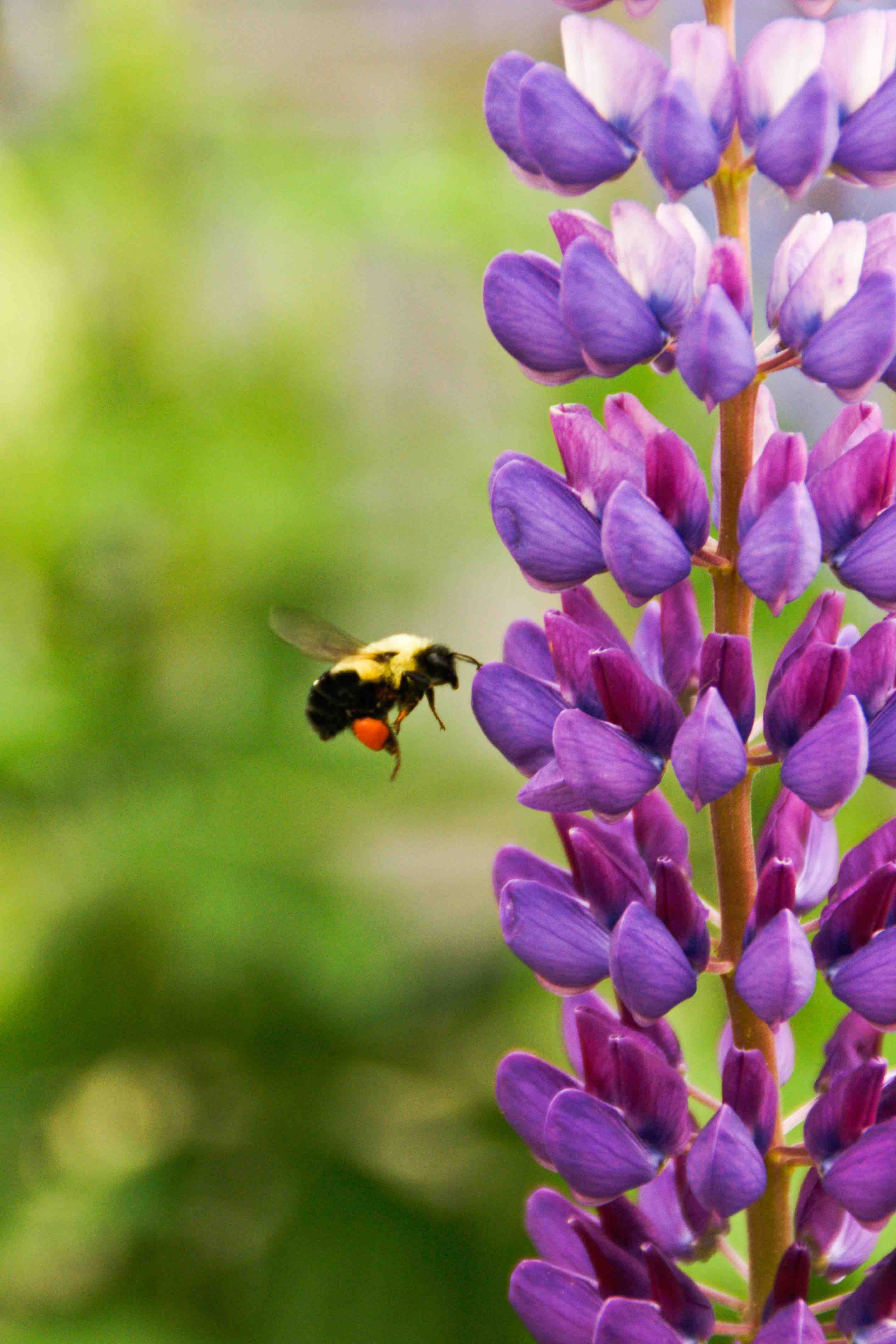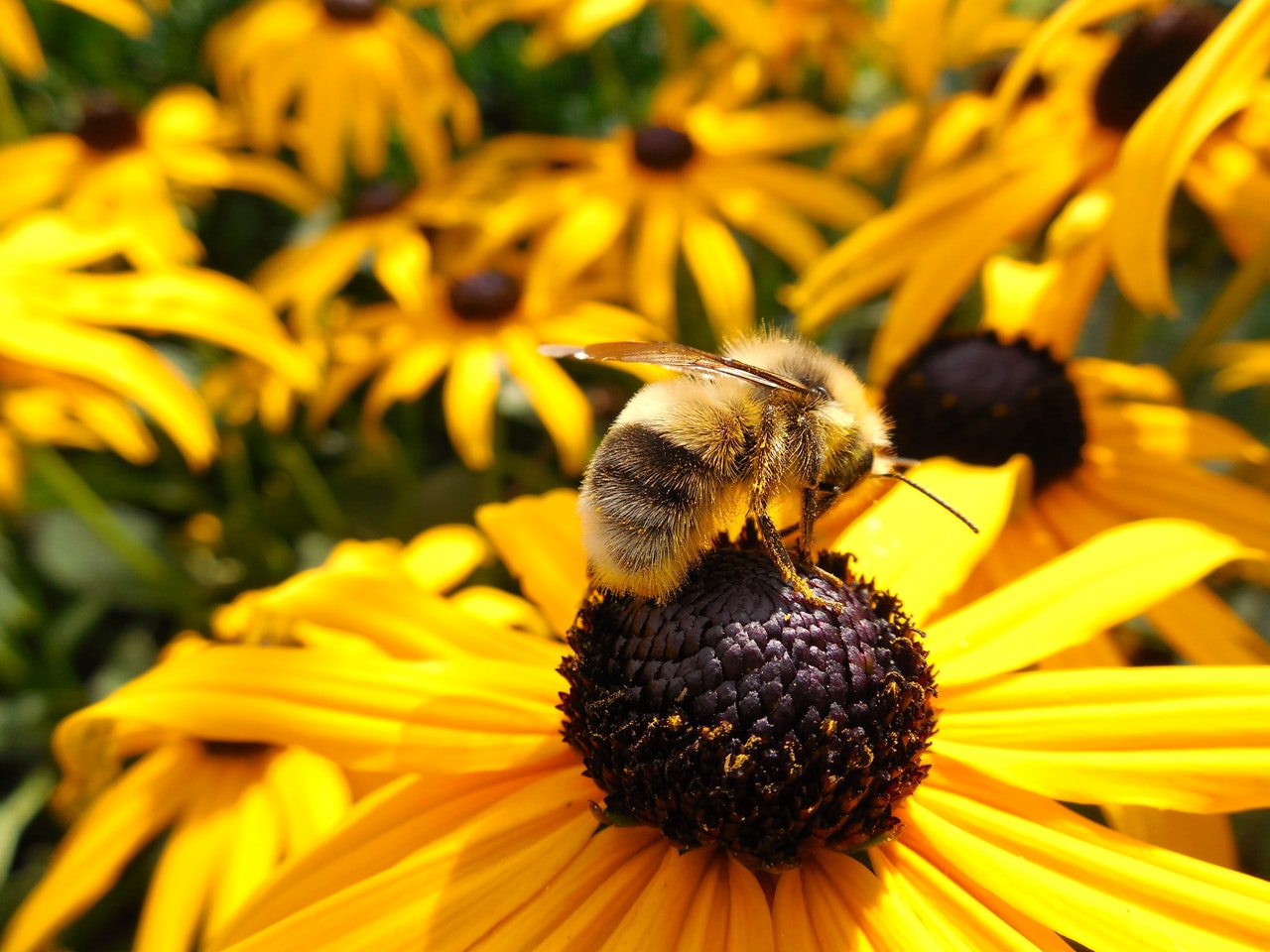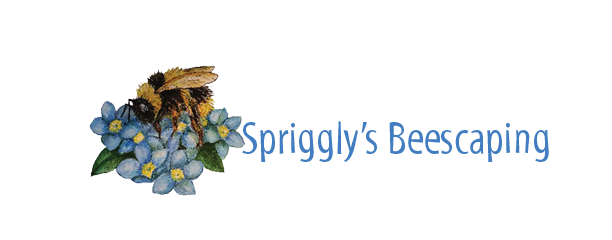What is Spriggly's Beescaping?
Led by husband-and-wife team Brannen Basham and Jill Jacobs, Spriggly’s Beescaping is a small business from Western North Carolina offering nature education and habitat restoration services.
From exhibits, books, and courses to landscape design and implementation, Spriggly's is dedicated to supporting pollinators and the ecosystem at large.
Why Support Pollinators?
Beneficial animal pollinators such as bees, butterflies, birds, and bats are responsible for pollinating two-thirds of the plant species on earth.
The vast majority of our flowers, trees, fruits, and vegetables rely on these pollinators to help them grow and produce. However, heavy use of pesticides, loss of habitat, pests and disease, and with other variables have caused a rapid decline of our pollinators. Now more than ever, bees and other pollinators need our support to prevent their extinction, and as a consequence ours.
In general, nature is in a need of our support and helping pollinators is a great place to start.
What Can You Do to Help?
The first way to help is to ensure that you are not a part of the problem.
For every pest there is a predator that's better than a pesticide.
Never use pesticides if you can avoid them, try attracting other beneficial insects such as native ladybugs and hover flies as ways to combat aphids and other pests. If you must use pesticides, please only do so when the plant is not flowering and at night if possible to minimize direct contact with pollinators. Remember, some animals do pollinate at night so please be mindful of the animals in your region.
The second way is to create an environment that supports pollinators.
- Leave an area of your yard "wild" - meaning leave it untended as it would be naturally. For example leave logs that have fallen and keep areas of open dirt uncovered by mulch where able.
- Provide man-made homes for pollinators such as native bee houses, bird houses, and bat houses.
- Plant a pollinator garden that has flowers which bloom throughout the growing seasons.
- Ensure that pollinators in your area have access to a water supply. If there is no natural water supply nearby, a shallow dish with pebbles and water will work, or consider a plant that can hold water for your pollinators such as a cup plant.
The third way is to educating those around you about the importance of supporting pollinators and restoring native habitat.
This can be done through interpretative exhibits, educational signage, dynamic website content, powerful newsletters, and more! If interested in learning all of the ways Spriggly's can help you promote pollinators, nature education, and environmentalism to your community, contact us to learn more.


